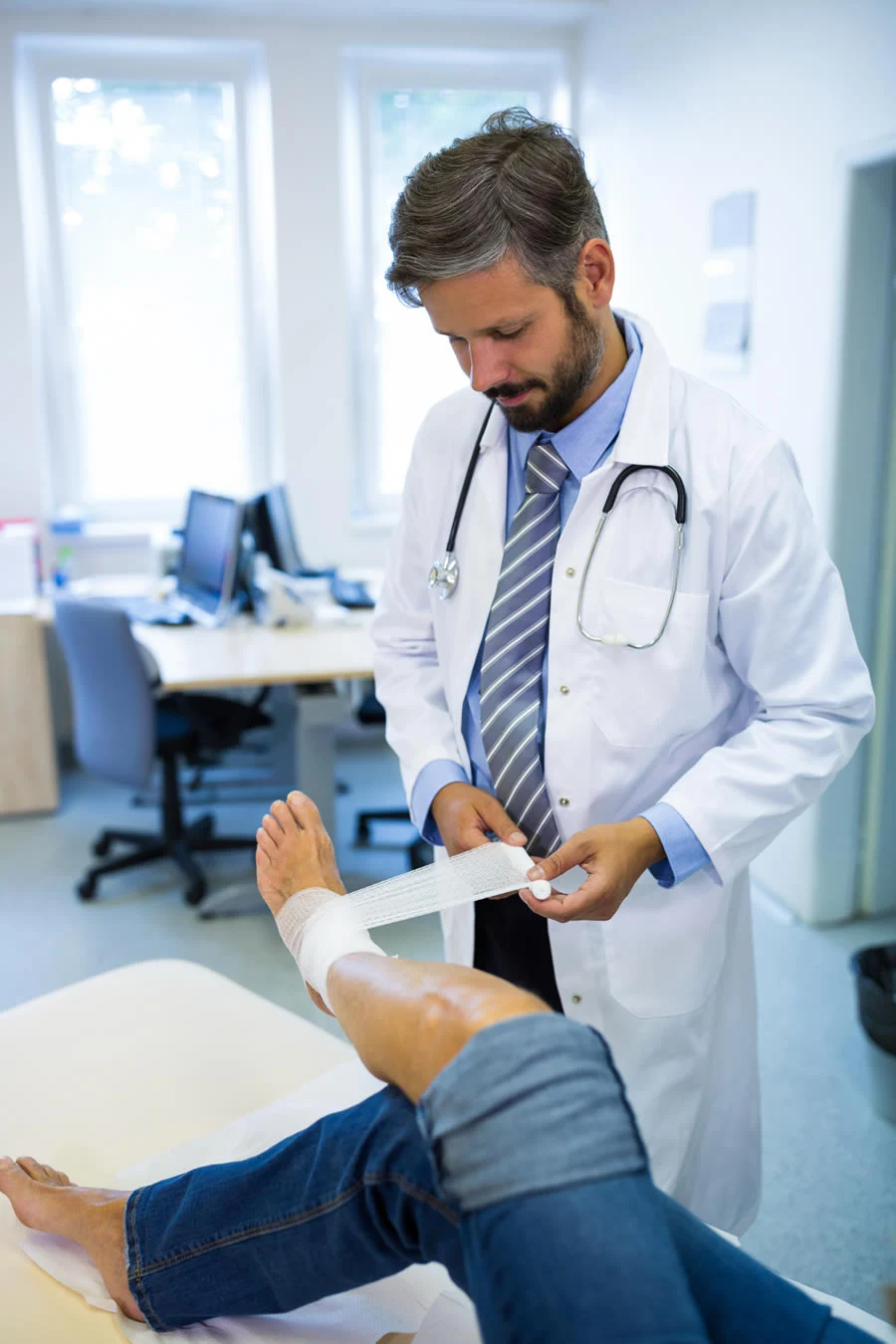Menu

The effects of chronic wounds like venous ulcers, diabetic foot ulcers, and pressure sores, extend far beyond the realm of physical discomfort. Past the visible scars and persistent pain, these wounds can inflict profound psychological distress and significantly impact a patient's quality of life. Understanding the psychological toll of chronic wounds is essential as it enables patients and healthcare providers to develop holistic treatment approaches that address both the physical and emotional aspects of wound care.

In this brief article brought to you by Mid Penn Foot & Ankle Specialists, we explore the psychological impact of chronic wounds and how a licensed podiatrist can help mitigate these concerns. Call Mid Penn Foot & Ankle Specialists to schedule an appointment with a foot specialist today.
Living with chronic wounds is like navigating a complex labyrinth of emotions, where anxiety, depression, and diminished self-esteem lurk at every turn. The relentless cycle of pain, discomfort, and impaired mobility can erode one's sense of self-worth and independence, leading to feelings of frustration, helplessness, and isolation.
Moreover, the visible nature of chronic wounds can trigger feelings of shame, embarrassment, and social withdrawal, further exacerbating the psychological burden.
We are committed to providing personalized, compassionate care for everyone who walks through our doors. If you’re ready to schedule an appointment with one of our doctors, give us a call or visit one of our locations today.
BOOK AN APPOINTMENTFor many individuals, the uncertainty surrounding the healing process adds another layer of anxiety and stress. Despite adhering to treatment regimens and seeking medical intervention, the slow progress or recurrent nature of chronic wounds can evoke feelings of despair and hopelessness.
In the face of such formidable psychological challenges, cultivating resilience and seeking support are vital components of coping with chronic wounds. Let’s look at some strategies to navigate the psychological impacts and promote emotional well-being.
Communication is key. We encourage patients to express their thoughts, fears, and concerns about their wounds. This helps foster a sense of validation and empowerment. This includes communicating with your healthcare providers. They can provide valuable information about the condition, treatment options, and self-care strategies to help you take an active role in your healing journey.
Incorporating relaxation techniques such as deep breathing, mindfulness meditation, and guided imagery can also help alleviate stress, reduce pain perception, and enhance overall well-being. These practices promote relaxation, improve sleep quality, and foster a sense of inner calm amidst the turmoil of chronic wound management.
Perhaps most importantly, you should continue to live your life to the fullest. Engage in meaningful activities and hobbies that bring joy and fulfillment. Fostering connections with loved ones, pursuing creative outlets, and setting achievable goals can instill a sense of purpose and resilience in the face of adversity.
Chronic wounds are common in feet and lower legs, and a licensed foot doctor has the education and training to diagnose and treat these conditions. If you want freedom from the psychological impacts of chronic wounds, then you’ve got to attack the root cause. Licensed podiatrists offer a range of foot care and specialized wound care which target the source of the wound.
Call Mid Penn Foot & Ankle Specialists to schedule an appointment with a member of our team today. Our representatives are on standby to take your call, and we are always happy to take a message if you have questions or concerns.
From the moment we step out of bed in the morning to the last stroll around the house…
Read MorePregnancy is an incredible journey, but let’s be real: it’s also tough on your body. From morning sickness…
Read MoreOur bodies are an intricate network of bones, muscles, tendons, and ligaments working together…
Read More